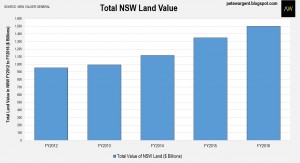There are more interesting articles, commentaries and analyst reports on the Web every week than anyone could read in a month.
Each Saturday morning I like to share some of the ones I’ve read during the week.
The weekend will be over before you know it, so enjoy some weekend reading…and please forward to your friends by clicking the social link buttons.
Underquoting: it’s time to focus on reserve prices, the real frustration for home buyers
In theory – Real estate agents like all service professionals play by the rules in order to achieve a positive results for everyone.
But is that always the case in practice?
According to an article on www.domain.com.au the issue of underquoting is still very much alive in the industry, making it eve tougher for home buyers.
In nine days, four real estate agencies in Victoria have come under scrutiny for underquoting: two have admitted the practice, another two face allegations that will be taken to court.
Is this evidence that the pervasive practice is more common or that there is more legal attention on stamping it out?
That depends on who you speak to.
The Real Estate Institute of Victoria says 90 per cent of its more than 2200 members operate in areas where underquoting doesn’t exist.
It has worked closely with the state government to shape new laws – they have passed parliament but there is no start date yet – that will force agents to be more transparent about price quotes.
But what they don’t tackle is perhaps the source of the biggest frustration for house hunters: the reserve price.
A hot auction, with fierce, frenetic bidding, where the sale price far exceeds the reserve is not in itself an underquote, though the government claims some agents have used this excuse to underquote.
Vendors are able to decide on their reserve price on the morning of the auction, and that can be above the advertised price. (A vendor is able to keep their reserve private until the day of the auction: in this case, an agent can advertise a price based on an estimate decided when they sign up to represent the vendor.)
Many house hunters report to our reporters weekly that they have been the victim of underquoting.
Read the full article here
The experts predictions for 2016 – how accurate were they?
Another great Real Estate Talk show produced by Kevin Turner.
Michael Yardney talks about the 12 important lessons for property investors in 2017.
Cate Bakos was concerned about APRA, unit vs house price differences and she thought the unit market might improve – Find out if she is still concerned.
Andrew Mirams was another one of our experts we asked about what he saw ahead at this time last year and he predicted unit defaults – Find out what is he saying about 2017
Meighan Hetherington shares a great story about how she discovered the fascination of becoming a property investor and how she now shares that passion with other investors.
Brad Beer answers a complex question from Grant Campbell about property depreciation and capital gain.
If you don’t already subscribe to this excellent weekly internet based radio show do so now by clicking here.
NSW land values rise again to $1.5 trillion
There’s often a conversation around the dinner table which starts with “If only I knew what the land would be worth today…”.
It would seem that this has never been more true than now for land value in NSW.
This Blog by Pete Wargent, looks at the statistics behind the results.
NSW land values soar
Will Rogers probably didn’t have Sydney’s inner west in mind when he famously said “don’t wait to buy land; buy land and wait”, but it would have been an apt observation if this has been the case.
The New South Wales Valuer General reported that total land values had risen yet again by 11.3 per cent in the 2016 financial year to $1.5 trillion.
The value of the state’s land is up by more than 57 per cent in only four financial years.
Unsurprisingly the gains were driven by residential land values which rose by 11.1 per cent to $1.2 trillion.
Read the full article here
Half of households are not saving – This could be why
Do you find it easy to save?
If the answer is no, it could have something to do with your personality type according to recent research results.
An article published by thenewdaily.com.au has revealed a study showing certain personality traits in those who can and cannot save money.
Australians who struggle to save may have a personality type that gets in the way, according to a banking expert.
Research by ME bank earlier this year found that 51 per cent of Australian households are saving nothing at all, with many going backwards into debt.
Nic Emery, who oversees the bank’s savings accounts, transaction accounts and credit cards, told The New Daily one explanation is that many of us are just “wired differently”.
His theory is that there are two types of people: those who naturally ‘plan for tomorrow’ versus those who ‘live for today’.
The second group finds it much harder to save, he said.
“If you’re a ‘live for tomorrow’, then it’s like exercise – you need to get into the habit of it.
It feels really hard until you start doing it.”
The 49 per cent of Australian households that do save tucked away an average of $779 a month, or about $9300 a year, ME found.
Of this group of savers, it was the youngest, the infamous ‘millennials’ of Generation Y, that reported saving the most on average: $848 a month, or $10,177 a year.
This is because Gen X, despite being in their peak earning years, are probably weighed down by the heavy costs of raising a family and paying for cars and homes, Mr Emery said.
Financial disadvantage may explain why many Australians cannot save.
But for those who simply overspend, overcoming the ‘live for today’ mindset is crucial, he said.
“If you’re inherently not wired that way, and I count myself in that group, then you need something that automatically does it for you,” he said.
“The first step is to force yourself to sit down and work out how much you can afford to save out of each pay cycle and then to set up an automated sweep that sweeps that money into a savings account each month.”
Click here for the full article
Doing these 9 uncomfortable things will pay off forever
There’s an old saying “no risk no reward” – and whilst that can often be interpreted as taking major risks, it is often the small changes we make that have the greatest impact.
Whether it’s changes to your finances or personal habits, this article from Business Insider reveals 9 uncomfortable things to help people grow.
What makes someone uncomfortable depends on the person, but what’s universally true is the value of recognising boundaries and continually pushing them.
Here are some uncomfortable things that Quora users have found helped them grow:
- Question everything.
“The most uncomfortable thing one can do is to question everything that is taken for granted and seek answers,” writes Malli Gurram. “Try to see the other side of the norm.”
- Be honest.
Being the most honest you’ve ever been with someone in your life will be one of the most uncomfortable things you can do, Ryan Brown says, but it could also be the most valuable.
- Wake up extremely early.
While everyone else sleeps, waking at 5 a.m. is the perfect, albeit challenging, way to begin the day in silence, he writes.
- Watch your pennies.
From auto repairs and life insurance to coffee and french fries, keep track of every penny you spend for several months, suggests Bruce A McIntyre.
- Track what you eat.
Keeping track of all the food you eat and all the exercise you do in a day can be challenging, but Tina Marshall says using her MyFitnessPal app helped her see the harm she was doing to her body.
- Eat only nutritious food.
After you track your food, start eating only what is truly nutritious — Doug Whitney says this will change your life forever.
- Practice public speaking.
It may be scary to think about, but you never know when you may be called upon to speak in public.
- Accomplish an almost impossible goal.
The most uncomfortable thing you can do, according to Rizwan Aseem, is to set and achieve a goal that’s harder than something you’ve ever done before.
- Pick just one thing to master at a time.
Your approach to self-betterment might be trying as many things as possible and seeing what works.
Click here for the full article





No comments:
Post a Comment